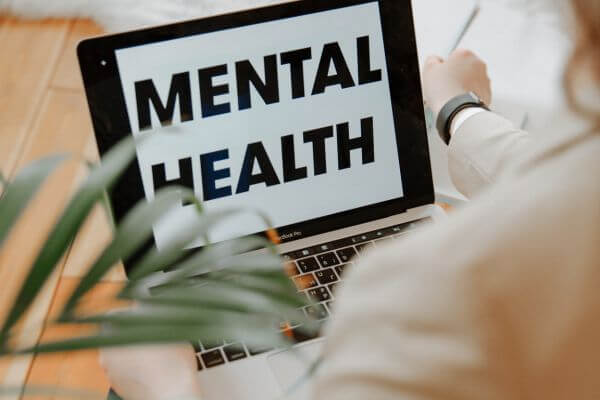In today’s fast-paced world, maintaining mental well-being can be challenging. The good news is, technology, often accused of amplifying stress, also offers solace. Mental health apps are transforming the landscape of psychological care.
Designed with expert input, these apps serve as pocket therapists. They offer a plethora of resources, from meditation guides to mood trackers, ensuring holistic mental care. And while they’re no replacement for professional care, they do provide substantial support.
Interestingly, as mental health gains global attention, these apps are becoming indispensable. They’re not just tools, but companions, guiding individuals through life’s tumultuous waves.
The Rise of Digital Therapy
The digital age has revolutionized therapy. With the convenience of apps, therapy is now accessible, affordable, and anonymous. People can seek help without stigmas or financial burdens.
These platforms use evidence-based techniques. Cognitive Behavioral Therapy (CBT) and Mindfulness, for instance, are commonly incorporated. This ensures users receive scientifically-backed assistance.
But it’s not just about therapy. Many apps offer community support, connecting users with peers who understand their struggles. This sense of belonging can be profoundly healing.
Features That Stand Out
Mental health apps are diverse, but standout features make some superior. Customized plans, for one, make a difference, tailoring therapy to individual needs.
Engaging designs, with soothing colors and interactive interfaces, enhance user experience. Gamification, though often overlooked, can motivate users to stick to their mental health journey.
Moreover, some apps incorporate Artificial Intelligence. By analyzing user input, these apps offer real-time feedback and coping mechanisms, making therapy highly dynamic.

The Debate: Apps vs. Traditional Therapy
Mental health apps are innovative, but can they replace traditional therapy? The consensus is mixed. While apps offer unprecedented accessibility, they might lack the human touch intrinsic to healing.
However, many therapists now recommend apps as supplementary tools. They can be especially beneficial between sessions, helping users practice coping strategies.
It’s essential to remember, though, that severe mental health issues require professional intervention. Apps can support, but not substitute, expert care in such instances.
Data Privacy and Ethical Considerations
While beneficial, these apps aren’t without controversies. Data privacy is a prime concern. Users share intimate details, and breaches can have severe repercussions.
App developers are continually working on bolstering security. End-to-end encryption and stringent data policies are becoming standard. Still, users are advised to research apps thoroughly before divulging personal information.
Beyond privacy, there’s the ethical debate. Ensuring that the advice provided is accurate and beneficial is crucial. As the sector grows, regulatory bodies might need to step in.

The Road Ahead: Future of Mental Health Apps
The trajectory for mental health apps seems promising. As technology advances, we can expect more refined, intuitive, and comprehensive platforms. Augmented Reality (AR) and Virtual Reality (VR) might soon be integrated, offering immersive therapeutic experiences.
Research in AI will also play a pivotal role. Personalized feedback, based on robust data analysis, will make therapy even more tailored. The fusion of tech and psychology seems to be the way forward.
User Experiences and Testimonials
Every day, countless users turn to mental health apps. Their experiences are overwhelmingly positive. Many credit these platforms for pulling them through dark times, offering solace when most needed.
For Sarah, a 28-year-old, these apps were a revelation. She found solace in guided meditations, breathing exercises, and community forums. The anonymity provided allowed her to express freely without judgment.
However, not all reviews are glowing. Some users note glitches, while others desire more personalized experiences. But overall, the impact is largely beneficial, and the gratitude palpable.

Mental Health Professionals and App Collaboration
It’s exciting to witness how professionals are collaborating with app developers. Their expertise ensures content accuracy, making these platforms more reliable and effective for users seeking help.
Dr. Martinez, a renowned psychologist, praises this union. He believes the integration of tech and psychology amplifies the reach of mental health services. More people can access quality care, transcending geographical barriers.
It’s worth noting, though, that this isn’t a one-size-fits-all. Professionals must regularly update app content, keeping in tune with evolving therapeutic practices and user needs.
Tackling the Stigma with Technology
Historically, mental health has been stigmatized. This prevented many from seeking the help they desperately needed. However, the introduction of apps is steadily challenging and changing this narrative.
The layers of anonymity provided by technology shield them from societal judgment, facilitating honest expression and genuine healing. By providing discreet services, these platforms enable users to seek help privately.
The hope is, as more people use and advocate for these apps, the age-old stigmas will further erode. The end goal? A world where mental health care is both normalized and accessible.

Selecting the Right App for You
With a plethora of options available, choosing the right mental health app can be daunting. It’s crucial to ensure the app resonates with individual needs and preferences. Here’s where research and recommendations play a pivotal role.
Start by understanding your requirements. Are you seeking meditation guides, mood trackers, or cognitive therapies? Once you have clarity, delve into user reviews and ratings, as they offer candid insights.
Furthermore, consult with a mental health professional. Their expert opinions can guide you towards apps that align with therapeutic goals. Remember, the right choice can significantly impact your mental well-being journey.
Conclusion
Mental health apps, without a doubt, are revolutionizing therapeutic landscapes. They’re democratizing access to care, ensuring more individuals can seek help without constraints. As technology continues to evolve, so will these platforms, promising a brighter, more mentally resilient future for all.


